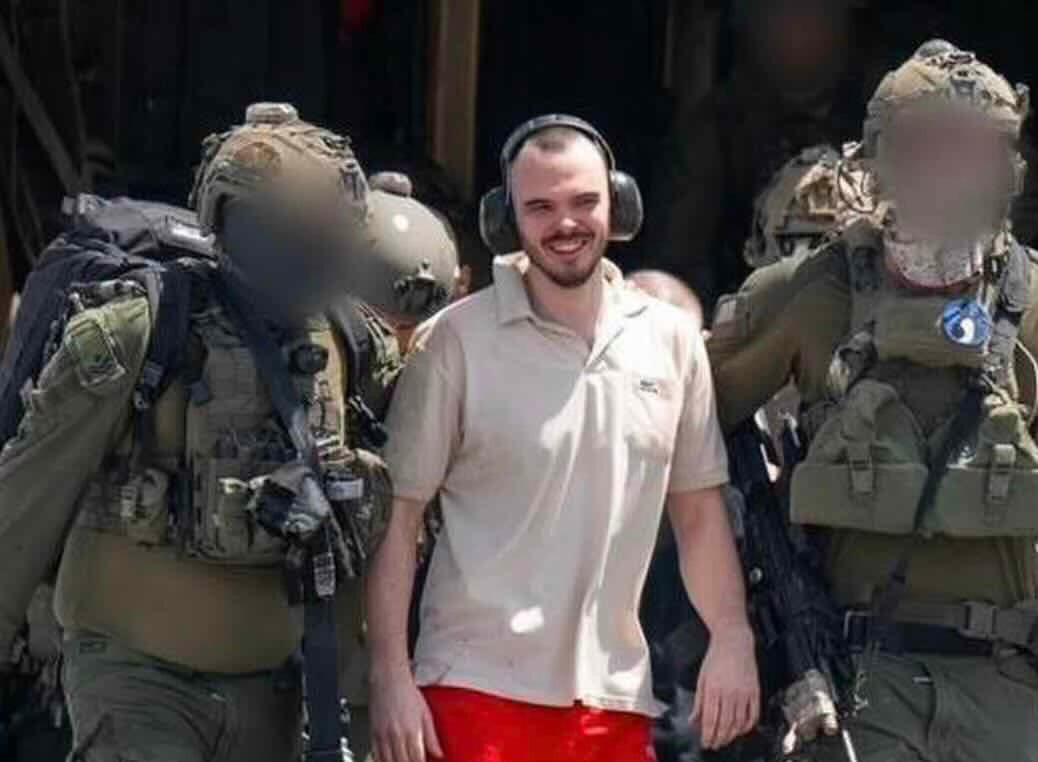"Civilians" who hold hostages aren't civilians
A deep dive into international law and the Israeli hostage rescue in Gaza
Originally published in The Algemeiner.
The IDF completed a stunning rescue operation last Saturday, bringing home the (now former) hostages: Noa Argamani (25), Andrey Kozlov (27), Almog Meir (21) and Shlomo Ziv (40) who had been held in Gaza for eight months.
A number of the hostage takers were killed in the operation, including Abdala Aljamal, a journalist for Al Jazeera, as well as his father, a local doctor. The deaths of the hostage takers triggered significant international criticism against Israel, including the startling assertion by a BBC journalist that Israel should have warned of the rescue operation in advance: on the basis that the hostage takers and other locals were “civilians.” (An Israeli spokesperson replied that such a warning would have resulted in the immediate killing of the hostages, thus defeating the purpose of the rescue mission.)
Yet under international law, common sense, and basic morality, a person who holds hostages is not, in fact, a civilian at all.
The Geneva Convention Additional Protocol I defines three categories of persons in a conflict: 1. combatants (Article 43), 2. civilians (Article 50), and 3. any person who has taken part in hostilities but who does not qualify as a legitimate combatant under Article 43 (Article 44). In 2006, the United States officially adopted a designation called the “unlawful combatant" which reflects this third category from the Geneva Convention. A number of other countries have also adopted their own “unlawful combatant” laws, including the United Kingdom and Israel. The argument in favor of the “unlawful combatant” designation is that it is necessary for dealing with terrorism and other non-state actors: an entire category of combat that was not fully contemplated at the time the Geneva Conventions were created.
The concept of an “unlawful combatant” is not universally accepted and is strongly criticized by some countries. Nonetheless, it is well established by international humanitarian law that “a civilian is a person who does not take an active part in hostilities.” (emphasis added) Therefore, a person who does take active part in hostilities is at best a combatant, or at worst an “unlawful combatant,” but in no event can such a person claim to be a “civilian.”
Holding hostages is a form of “taking an active part in hostilities.”
The International Convention Against the Taking of Hostages and Geneva Convention Additional Protocol I, Article 75, strongly prohibit taking and holding hostages, and treat doing so as both a war crime and an act of terrorism. Therefore, a person holding Israeli hostages in Gaza is, at the very least, a hostile combatant, and arguably an “unlawful combatant.” In either case, a hostage taker is unquestionably a war criminal and, by international convention, also a terrorist. This is true whether or not such a person wears a uniform or holds a rank, and remains true even if the hostage taker “moonlights” at some other job, such as, in this case, a journalist or a doctor. In no event can a person who holds hostages be considered a “civilian.”
It is clear from common sense and basic morality why this legal conclusion must be true: if it were not, then hostage rescue missions and even basic self defense would be prohibited as long as the attacker does not wear a uniform or hold an official rank, creating a paradoxical world in which terrorism is technically permitted, but self defense is not.
During last Saturday’s hostage rescue operation, the IDF came under heavy fire, much of which was directed at the hostages themselves. Hamas claimed that some 270 civilians were killed, figures which triggered widespread international condemnation against Israel. Yet in an exposé last November, the Associated Press revealed what local journalists have known for years: that Hamas casualty figures, as a rule, do not distinguish between civilians and combatants, nor do they identify the cause of death, which sometimes includes accidental Hamas crossfire, intentional Hamas executions, and misfired Hamas rockets.
Another Associated Press exposé this month revealed that Hamas has significantly overstated the number of women and children supposedly killed in Gaza since October 7. Therefore, any Hamas claims relating to casualty figures should be treated with significant skepticism. Furthermore, it is unclear how many of the locals present at the hostage rescue had been active in taking and holding the hostages, which is not only a war crime and an act of terrorism, but also precludes such a person from claiming the status of “civilian.”
International criticism of Israel’s hostage rescue operation stands in stark opposition to the fundamental tenets of international law, morality and basic common sense. Such discussions lead us toward a paradoxical worldview in which hostage taking and terrorism are permitted, while self defense and hostage rescue operations are not: thus emboldening terror groups the world over, and planting the seeds of long term danger to all free societies.





